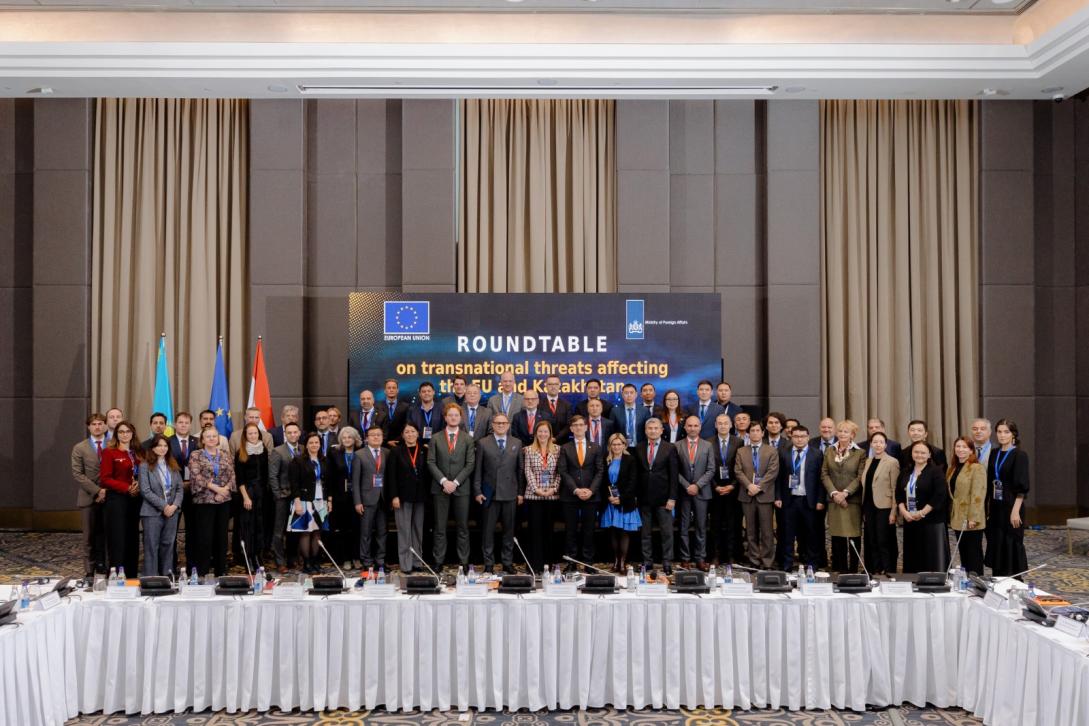ASTANA HOSTED A ROUNDTABLE ON TRANSNATIONAL THREATS AFFECTING THE EU AND KAZAKHSTAN

Strengthening Partnerships Against Global Threats
High-level officials from the EU and Kazakhstan, alongside security experts, examined key intersections between extremism, terrorism, border protection, and trafficking activities. The discussion highlighted the importance of unified responses to challenges that respect no borders, including cyberattacks, organized crime, and illegal migration.
Kazakhstan’s Deputy Minister of Foreign Affairs, Roman Vassilenko, welcomed participants with a stark reminder of the global nature of these threats:
“Transnational threats show no respect for borders or national sovereignty. Whether it’s cyberattacks, organized crime, terrorism, trafficking in persons, or illegal migration, no country is immune from these global challenges. To date, Astana has ratified all 19 UN universal counter-terrorism conventions and protocols and actively engages with the international community, including the European Union.”
EU-Kazakhstan Cooperation
EU Ambassador Aleska Simkic commended the roundtable as a crucial step in reinforcing security cooperation between the EU and Kazakhstan:
“Today’s global security threats are neither confined by borders nor limited to single regions; they affect us all, underscoring the need for a united and coordinated response. The European Union and Kazakhstan are bound by shared interests and mutual challenges—whether addressing extremism, human trafficking, or organized crime. By working together, we build not only a safer Central Asia and Europe but also contribute to broader regional stability and peace.”
Dutch Ambassador Nico Schermers echoed this sentiment, emphasizing the importance of collaboration:
“Only by working together and learning from each other’s perspectives and insights can we tackle transnational threats affecting the European Union and Kazakhstan. I am certain that this Roundtable will open new doors and opportunities for further multilateral and bilateral cooperation.”
Outcomes and Future Collaboration
The roundtable concluded with participants sharing key insights and reaffirming the need for expert-level dialogues to deepen cross-border collaboration. This renewed commitment sets the stage for joint efforts to address terrorism, trafficking, and organized crime.
The success of this event represents a significant milestone in EU-Central Asia cooperation. As both regions tackle shared challenges, this platform is set to become an annual forum for addressing international security issues and strengthening collective resilience.
By fostering such critical discussions, the EU and Kazakhstan continue to lay the foundation for a more secure and stable future, demonstrating their shared dedication to confronting global security threats with a united front.












